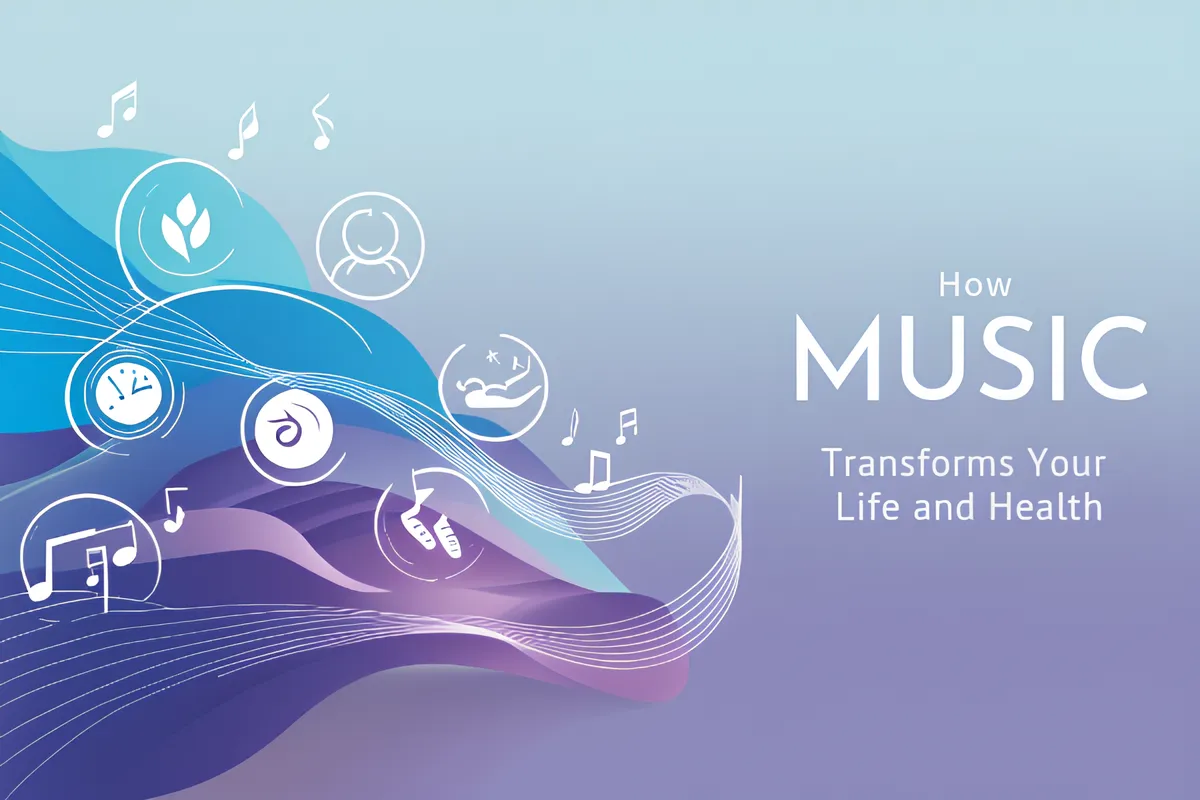Blog

The Surprising Power of Music: How It Can Transform Your Life and Health
Music isn’t just a pleasant background to your daily activities — it’s a powerful force that can profoundly affect your life, your health, and your overall well-being. From improving your mood and productivity to helping you relax and sleep better, music has a unique ability to connect with us on a deeper, more primal level. And the best part? There’s scientific backing to all these claims.
The Science Behind Music and Well-Being
Researchers have long studied the effects of music on the brain and body, and their findings show that music is far more than just entertainment. Different types of music and frequencies can trigger specific responses in the brain, altering your mental and emotional state in a variety of ways.
1. Mood Enhancement: Listening to upbeat or calming music releases neurotransmitters like dopamine and serotonin, which are responsible for happiness and pleasure. Whether you’re dealing with stress or simply want to elevate your mood, the right song can be a quick pick-me-up.
2. Stress Reduction: Slow, soothing music (typically between 60–80 beats per minute) has been found to slow the heart rate, lower blood pressure, and reduce the levels of the stress hormone cortisol. This type of music can act as a form of auditory therapy, helping you manage daily stress or anxiety.
3. Improved Sleep: Sleep problems affect millions of people worldwide, and one of the more effective non-pharmaceutical interventions is music therapy. Music with specific frequencies, such as 432 Hz or 528 Hz, is known to promote relaxation and improve sleep quality. These frequencies are often referred to as “healing tones” because they create a calming environment, allowing your mind and body to drift into a peaceful slumber.
4. Increased Productivity and Focus: Certain types of music, especially classical and instrumental tracks, can stimulate your brain, improve focus, and enhance cognitive performance. Studies show that background music at a moderate volume can even boost creative thinking and problem-solving abilities.
5. Emotional Healing: Music can evoke deep emotional responses and help in the healing process. Whether you’re grieving, coping with anxiety, or simply in need of comfort, music can act as a therapeutic companion.
Music Frequencies and Their Impact
Music affects us not just because of the melody, but also due to the specific sound frequencies that resonate with our brains. The right frequency can have surprising effects:
Delta Waves (1–4 Hz): These low-frequency waves are associated with deep, restorative sleep. Listening to music or soundtracks that incorporate delta wave frequencies can improve your sleep quality and help you wake up feeling more refreshed.
Theta Waves (4–8 Hz): Theta waves are linked to relaxation, creativity, and meditation. Listening to music in this frequency range can help you tap into a meditative state, quiet your mind, and boost your creativity.
Alpha Waves (8–12 Hz): These frequencies promote relaxation and stress reduction, often used to enhance learning, focus, and concentration. Alpha wave music can help create a calm yet alert mental state, making it perfect for work or study.
Beta Waves (12–30 Hz): These are higher-frequency waves that are linked to active concentration and alertness. Listening to beta-wave music can keep your mind sharp and focused, particularly during tasks that require sustained attention.
How Music Can Change Your Life
Adding music into your daily routine can create positive changes in many aspects of life. Here are some ways music can transform your mental, emotional, and physical health:
1. Better Emotional Health: Whether you’re facing a tough day or just want to relax, music can be an effective tool to help regulate your emotions and release built-up tension. It can act as a companion during challenging times or a source of joy during moments of celebration.
2. Physical Benefits: Music not only benefits your mind but also your body. Its ability to lower blood pressure, reduce heart rate, and alleviate physical pain has made it a useful complementary therapy for various physical ailments.
3. Improved Cognitive Function: Music can stimulate the brain, boost memory, and even help improve language skills. For those looking to enhance their mental agility, adding the right kind of music to your study or work sessions could make a world of difference.
4. Enhancing Sleep and Relaxation: When it comes to winding down after a busy day, music can be your best friend. Whether you struggle with insomnia or are just looking to relax, certain frequencies are scientifically proven to help induce a state of relaxation, allowing you to drift into peaceful sleep.
Introducing Luvo: Your Personalized Music and Meditation Companion
At Luvo, we understand the life-changing impact of music on health and well-being. That’s why we’ve developed an app that offers soothing music and guided meditations designed to help you relax, improve your mood, and enhance your sleep.
With Luvo, you can access specially curated music tracks that incorporate scientifically-backed frequencies proven to promote relaxation, reduce stress, and improve cognitive function. Our guided meditations also integrate these frequencies, allowing you to achieve a deeper state of calm and mental clarity.
You’d be surprised just how much music can impact your life — and with us, that power is right at your fingertips. Let the sound waves guide you toward better sleep, improved mood, and a more productive day. Ready to change your life? Check out Luvo and let the music take over.
Categories

© Copyright Luvo 2022
